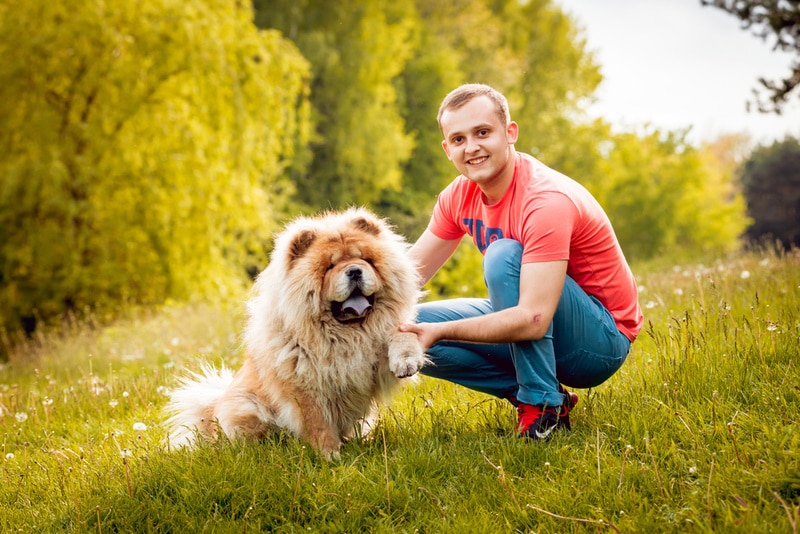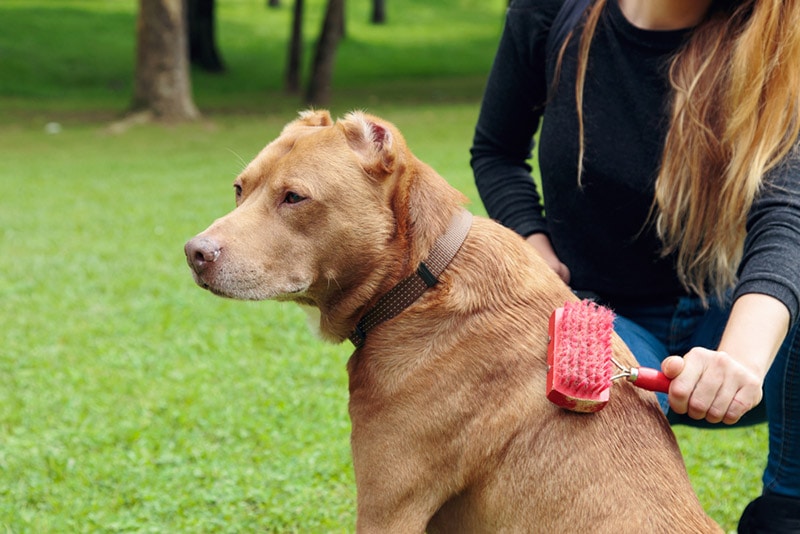Why Does My Shih Tzu Cry So Much? The Surprising Answer!

Updated on

If you’ve made a Shih Tzu your forever BFF, you may have noticed that your beloved pooch is particularly prone to crying. While some occasional whining and barking are normal for any breed, the Shih Tzu’s tendency to cry can be especially noticeable—and a lot to handle! There are several potential reasons why your furry friend might be vocalizing so much.
For starters, it’s important to remember that dogs use vocalizations as a way of communicating with us. A Shih Tzu may cry out when they want something from their owner—whether it be food, attention, or a trip outside. In addition, these dogs are loving and loyal—prone to becoming distressed if left alone for prolonged periods of time. Don’t immediately mistake their excessive vocalization for bad behavior or dismiss your dog as moody—they could be expressing a problem to you. Whatever the cause, this behavior can be frustrating—and even concerning—for dog parents, so let’s dive into why your furry bestie might be crying so much.
Is Crying Normal for Shih Tzus?
Crying from time to time is perfectly normal behavior for dogs of all breeds, including Shih Tzus. It’s important to understand the difference between healthy emotional expression and excessive whining or barking that could indicate a problem with your pet’s health or behavior. Knowing the differences can help you properly address any issues that may arise with your pet and ensure its well-being. For example, a dog might cry to get attention, express discomfort or pain, or simply communicate that they want something. However, excessive crying can be a sign of an underlying issue that needs to be addressed.

Rule Out Underlying Pain Issues
The last thing you want to do is ignore your buddy when they are crying out for help. Your Shih Tzu may cry excessively if they are suffering from an injury or chronic condition. To rule out any underlying health problems, you should consult your veterinarian—especially if your dog’s crying is accompanied by other signs of pain or illness, such as limping or loss of appetite.
Certain things can go wrong for Shih Tzus. The breed is known for its long, silky coat, but beneath the luxurious fur can lie a variety of ailments that cause discomfort. From allergies to infections, there are many reasons why your angel might be suffering from pain and crying out. Understanding what could be causing this issue is important in order to provide your pet with the best care possible. Allergies, ear infections, hip dysplasia, muscle issues, and more can all cause discomfort or even intense agony in these lovable canines. If you suspect that your pup is dealing with any kind of physical ailment, make sure to take them to their veterinarian immediately for a proper diagnosis and treatment plan.
Shih Tzus with Separation Anxiety
Crying because of separation anxiety is an issue that plagues many Shih Tzu owners. These beloved canines are known for their naturally sensitive disposition, which can lead to them becoming stressed when left alone. Crying excessively and acting up are signs of separation anxiety in these dogs. Finding ways to alleviate your Shih Tzu’s distress while they’re away from you is key to managing this condition. You should look into creating a safe space in your home where your pup can go when you have to leave—such as a room with toys, bedding, and other items that will make them feel comfortable.
Additionally, providing interactive exercises like chew toys or puzzles might help distract your furry pal from feeling lonely or anxious when left alone. Training methods such as counter-conditioning may also be beneficial for teaching your pup how to cope better with being apart from you during the day. You don’t have to go it alone, either: if you think your Shih Tzu suffers from separation anxiety, seek the help of a professional trainer or behaviorist who can help them feel less stressed when you’re away.
Afraid of Everything
If your Shih Tzu is a non-stop whimper machine, it might be a sign that they’re feeling anxious or fearful. While it can be hard to tell what is causing their distress, some other common signs of fear in Shih Tzu dogs include cowering, trembling, and hiding away from people or other animals. If your dog displays any of these behaviors regularly—along with excessive crying—then it’s likely they’re feeling afraid. Fear-based behavior should not be ignored as it can lead to more serious issues over time if not addressed properly. The good news is that there are things you can do to help ease your pup’s anxiety and reduce their fear.
If their reactions to loud noises, strangers, and other animals are freaking—or stressing—you out, there are steps you can take to help your pup become more comfortable. Building trust with your dog is one of the best strategies for managing fear-based behaviors in a Shih Tzu. Creating a safe and calm environment and offering plenty of rewards when they display desired behavior will also help them learn how to cope with stressful situations while strengthening the bond between the two of you. Socialization is extremely important also—gradually introducing your dog to new situations from puppyhood is vital. Even if your dog is an adult, retraining behavior around socialization is not impossible. Get it right, and your dog’s mood should improve.

Rewarding Bad Dog Behavior
Although there are many valid reasons why your Shih Tzu is feeling down, they may also be manipulating you. Have you ever stopped to consider if you’re inadvertently rewarding bad behavior when your canine cries? While it may seem innocent enough at first, constantly giving in to your pup’s demands can lead to long-term behavioral issues—including ever-increasing demands for your love.
Shih Tzus are notorious for their loud yelps when they want something, such as attention or food. Although it may be tempting to give them what they want just so they will stop crying, this can create an association between their whining and getting what they want. Over time, this will foster an expectation that complaining will lead to rewards, causing the cycle of bad behavior to continue. To prevent this from happening, reward good behavior while ignoring unwanted behaviors like barking or whimpering.
Vocal Dogs
While all dogs bark, howl, and whine to communicate, some breeds tend to be more vocal than others. Shih Tzus are not one of the breeds that are known for their frequent vocalizations. However, your small companion dog may have a lot to say. Individual Shih Tzus can be heard loudly barking or crying when they want attention or something they desire. Some Shih Tzus have a tendency to bark at strangers and other animals, as well as cry when left alone. As a rule, Shih Tzus love being around people and don’t like being left alone for long periods of time.
When a Shih Tzu cries, it usually indicates loneliness or boredom; they may also cry if they’re feeling neglected by their owners or scared in unfamiliar situations. In addition, some Shih Tzus are simply more vocal than others. Some dogs are more likely to cry, bark, and whine—just as some people are naturally talkative and others are more reserved. If your Shih Tzu doesn’t seem to be suffering from separation anxiety or a medical condition, it may just be a personality trait driving their tears.
Final Thoughts
In conclusion, determining why your Shih Tzu is crying requires some effort and detective work. Many different factors, like health, environment, and your behavior, can contribute to excessive crying. It’s important to have patience, observe the behavior closely, and consult a veterinarian if needed. Keeping an eye on your pup’s habits and signs could help you determine what’s causing them distress—and give them the comfort they need.
Featured Image Credit: Lindsay Helms, Shutterstock










